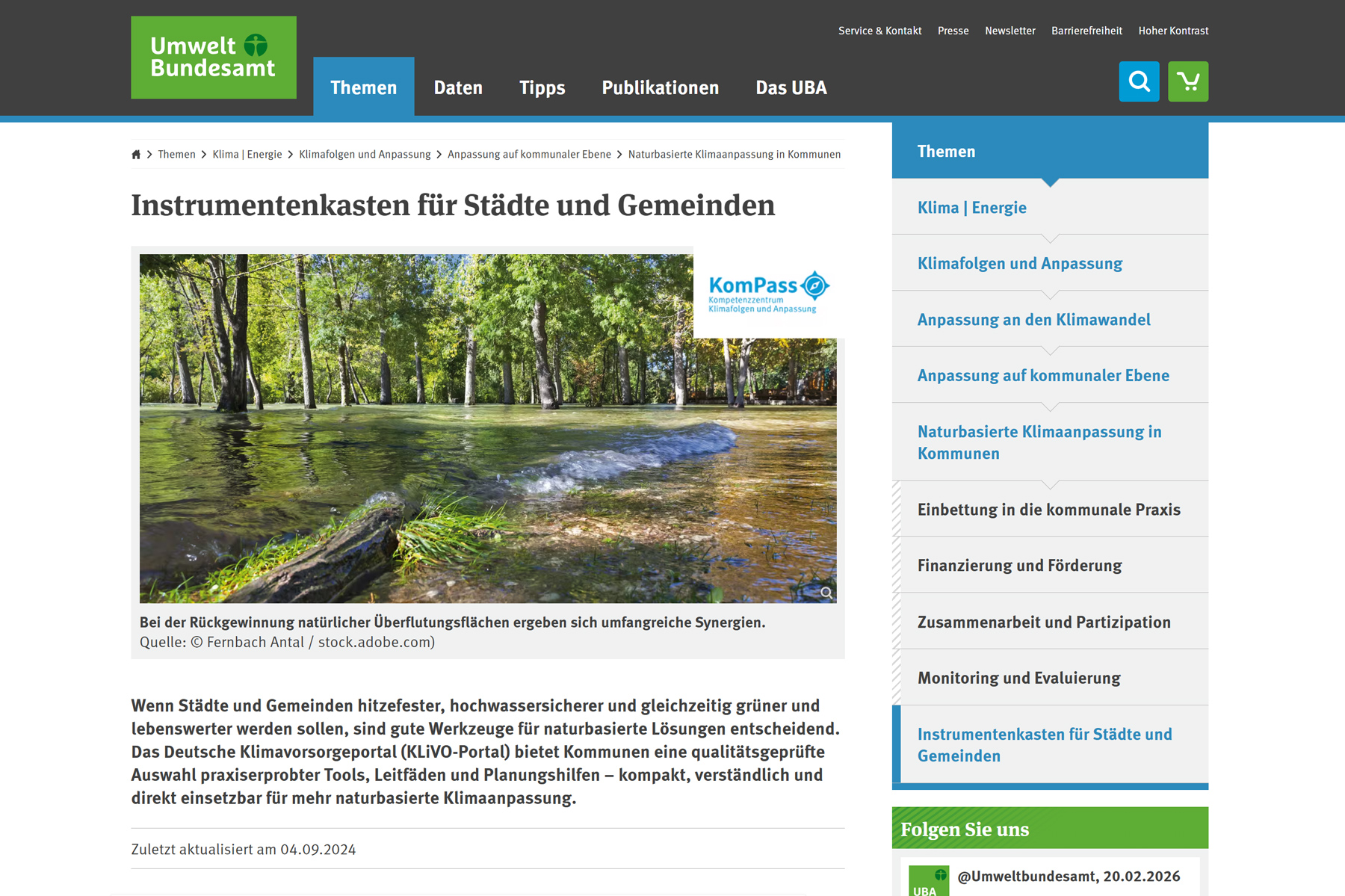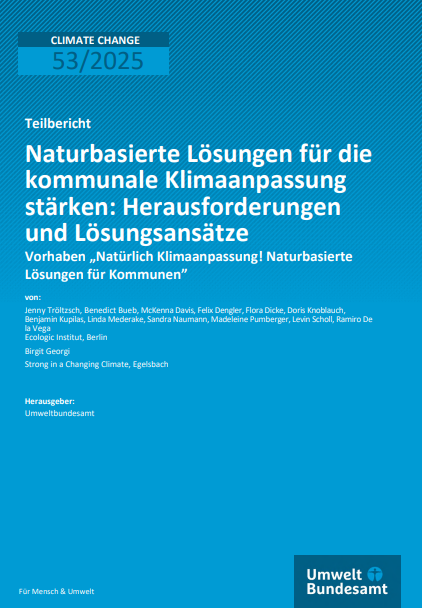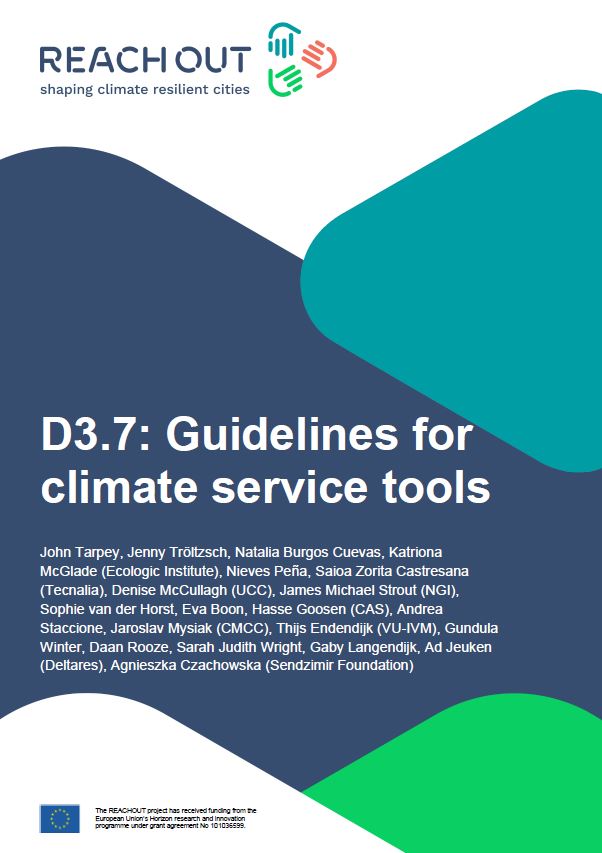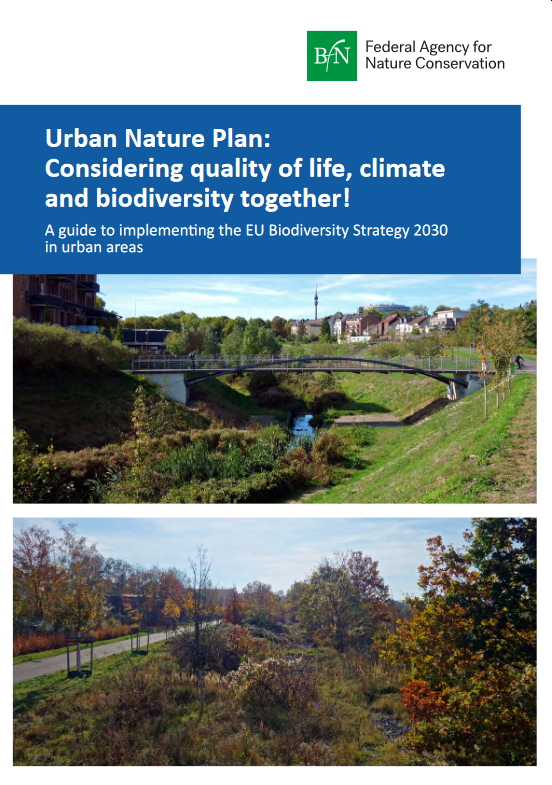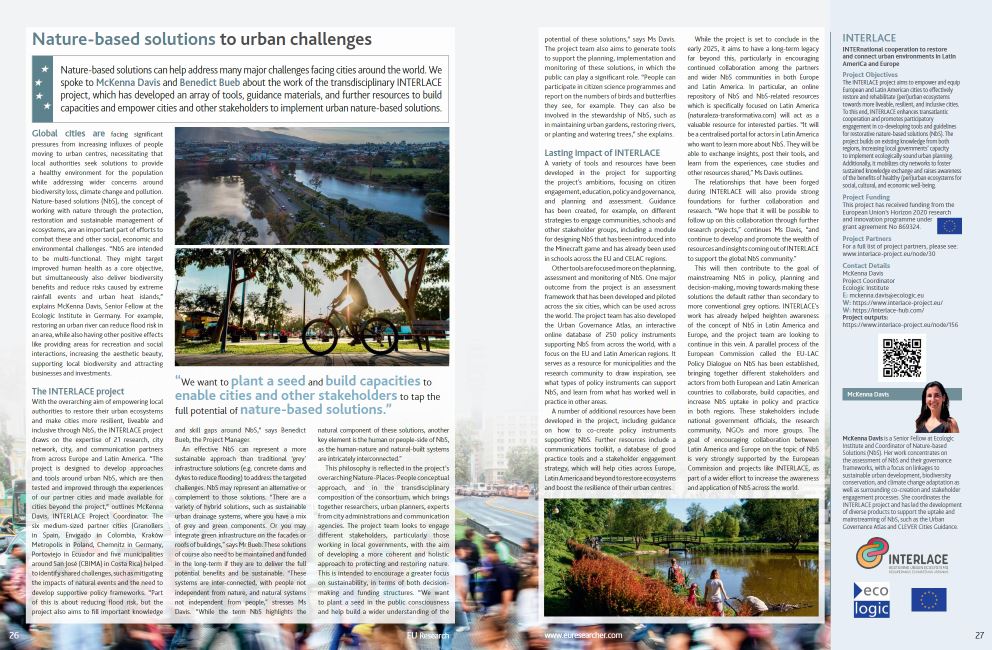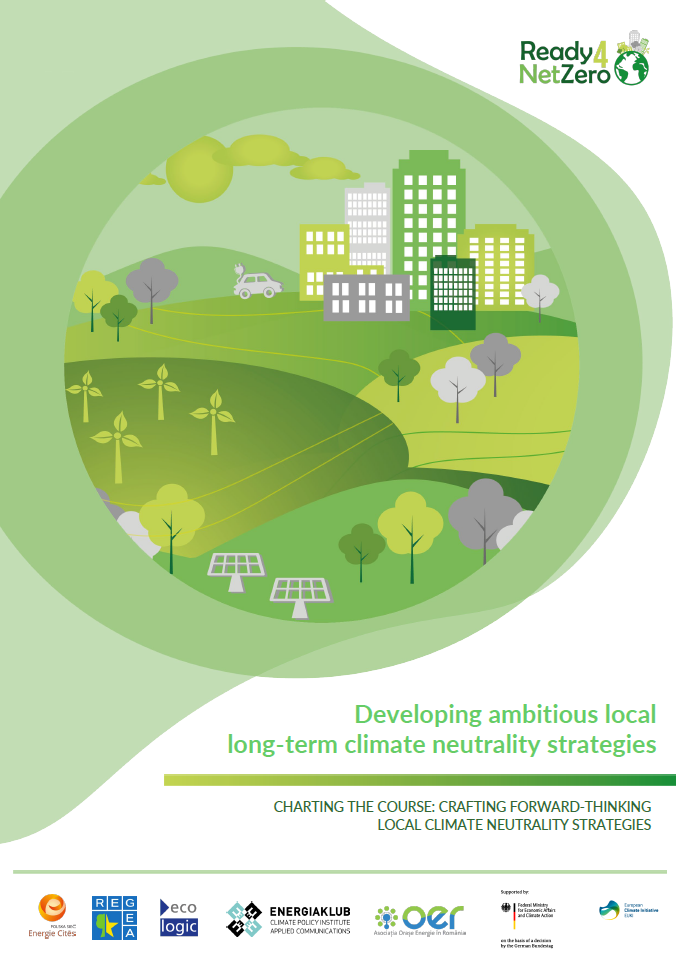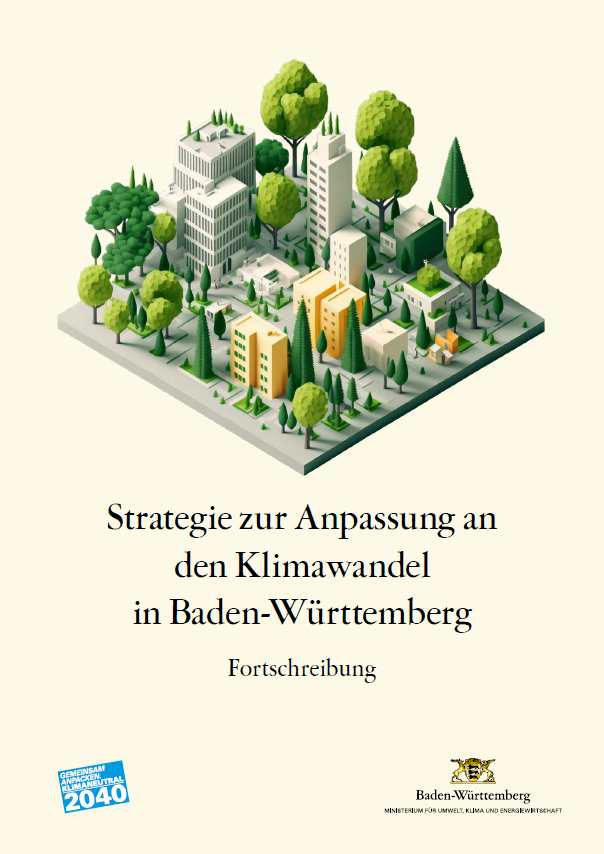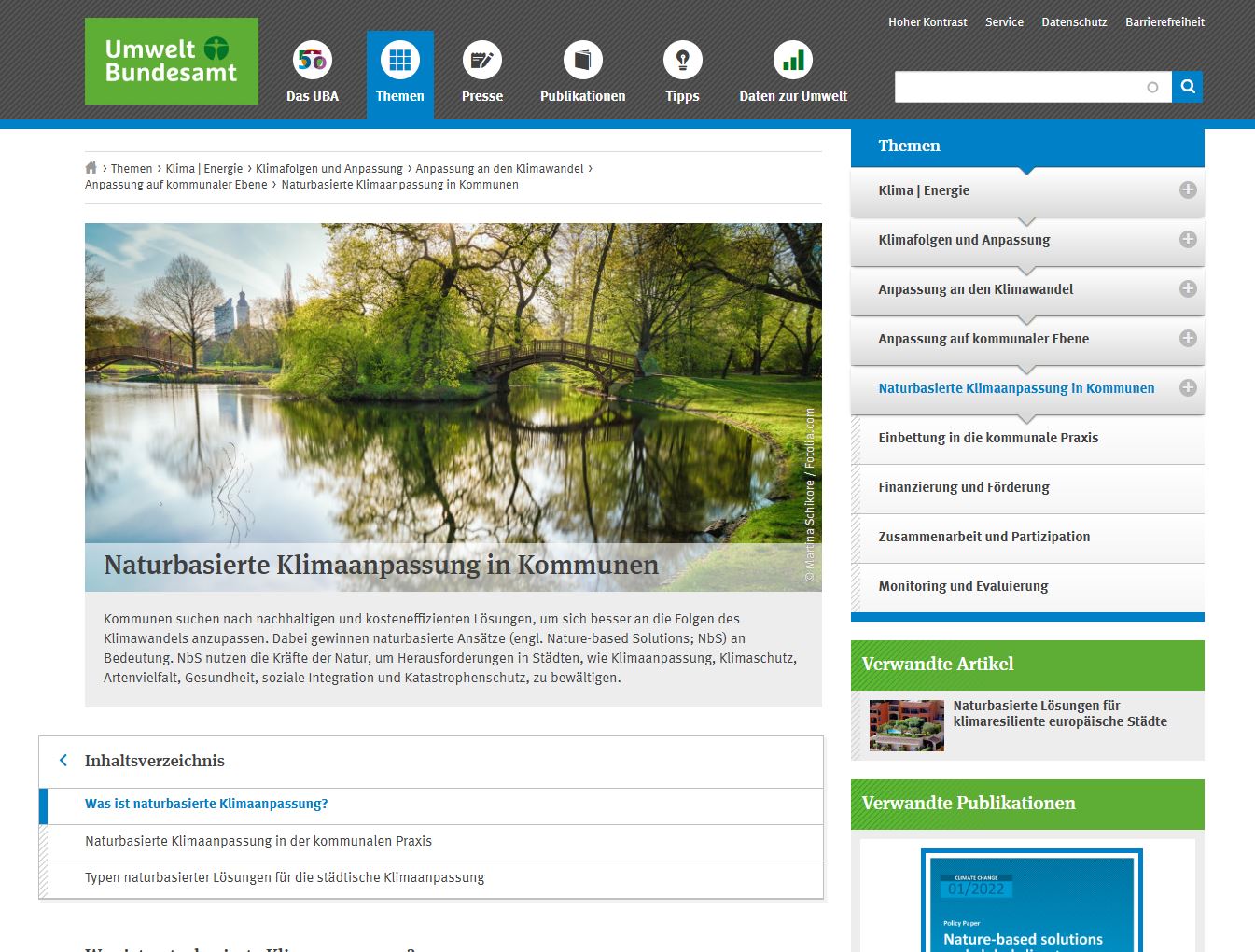
© Umweltbundesamt, 2025
Naturbasierte Klimaanpassung in Kommunen
UBA topic page
- Publication
- Citation
German Environment Agency (ed.): Naturbasierte Klimaanpassung in Kommunen. Topic page compiled by Ecologic Institute on behalf of the German Environment Agency, Dessau-Roßlau. URL: https://www.umweltbundesamt.de/themen/klima-energie/klimafolgen-anpassu…
Nature-based solutions, such as green spaces or river restoration, can make a valuable contribution to municipal climate adaptation. The new topic page 'Nature-based climate adaptation' on the Federal Environment Agency's website highlights different aspects of such approaches and offers municipalities targeted support in their planning and implementation. In addition to information on the legal framework and funding issues, it also contains practical examples and helpful publications. Ecologic Institute designed and implemented the content of the website on behalf of the Federal Environment Agency.
Financing and funding
The 'Financing and funding' subpage offers local authorities practical guidance through the jungle of funding programmes. Particularly in the initial phase, the question often arises as to how nature-based measures can be financed – this is where the page comes in: It lists relevant federal and state programmes, explains alternative financing methods such as public-private partnerships or citizen participation models and provides information on application procedures. The concrete added value: local authorities save time when researching, recognise funding opportunities more quickly and can plan projects more strategically – even with limited budgets.
Integrating into municipal practice
This subpage supports planners and administrative units in systematically integrating nature-based measures into existing processes and structures. It shows how green and water infrastructure can be integrated into urban land-use planning, climate adaptation concepts or urban development strategies. At the same time, it identifies typical obstacles - such as conflicting objectives or a lack of resources - and offers possible solutions. In this way, it strengthens implementation expertise at municipal level and promotes the practical anchoring of nature-based approaches in administrative action.
Cooperation and participation
Nature-based adaptation can only be fully effective if it is planned across departments and implemented together with the population. This subpage shows how municipalities can work better together within the administration and at the same time involve the expertise and commitment of citizens, associations or initiatives. It offers methods for effective participation, moderation of conflicting goals and joint development of ideas. The added value lies in the fact that acceptance, identification and willingness to care increase - which not only facilitates implementation, but also ensures long-term impact.
Monitoring and impact evaluation
Nature-based measures often develop their strengths over longer periods of time - which makes it all the more important to systematically monitor their impact. The ‘Monitoring and evaluation’ subpage provides local authorities with practical tips on how they can record, assess and visualise nature-based climate adaptation. It presents suitable indicators, describes methods for data collection and shows how monitoring can be integrated into existing reporting and planning cycles. The concrete added value: Municipal decision-makers gain reliable data to substantiate successes, justify funding, adjust measures in a targeted manner and secure political backing – a key building block for sustainable climate adaptation policy.



